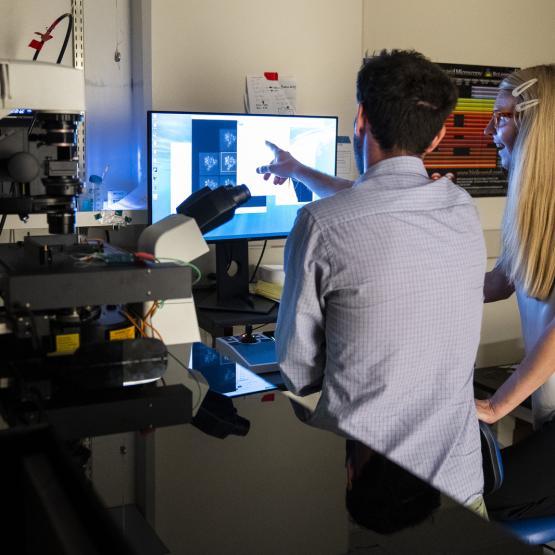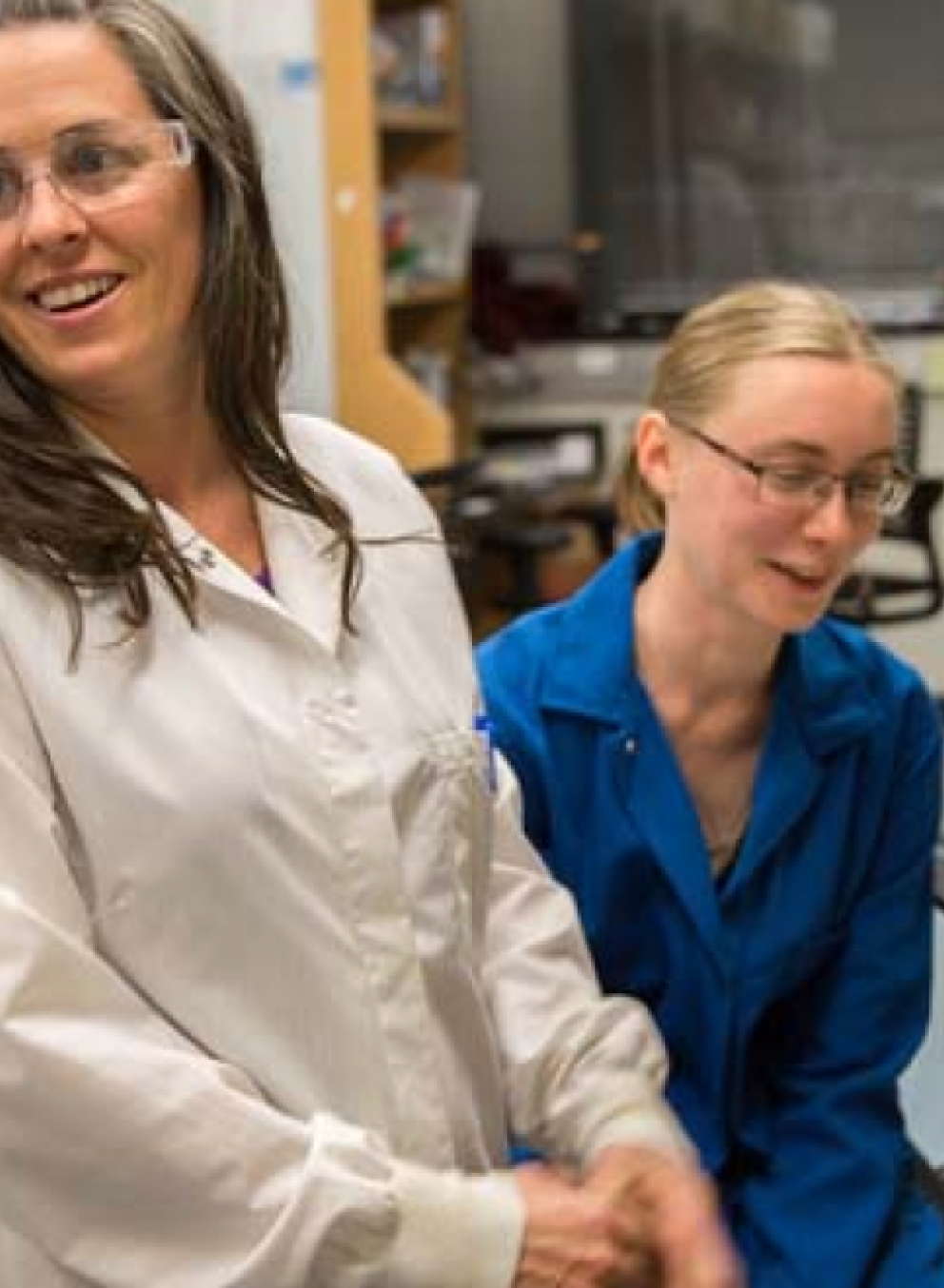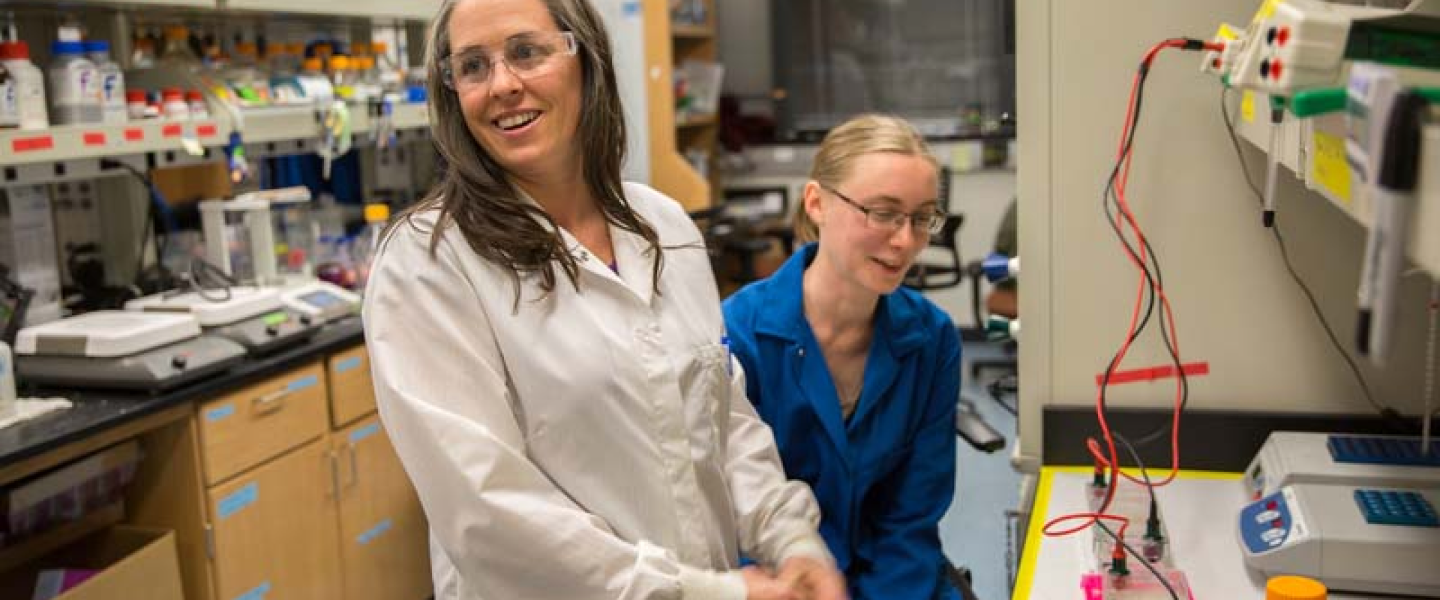Biomolecular Engineering and Bioinformatics
Program Overview
Biomolecular Engineering and Bioinformatics is an interdisciplinary program that combines expertise from biology, mathematics, chemistry, computer science, and engineering to train students and develop technologies to address major problems at the forefront of biomedical and bio-industrial research. The program builds upon the research and academic strengths of the faculty in the Biomolecular Engineering Department, as well as many other departments.

Career Outcomes
Students in Biomolecular Engineering and Bioinformatics can look forward to careers in academia, the information and biotechnology industries, public health, or medical sciences.
Unlike other engineering fields, but like life sciences, biomolecular engineers generally need to get Ph.Ds to get cutting-edge research and design jobs.
Those in bioinformatics can get good-paying jobs with just a B.S., though an M.S. degree offers the most potential for rapid advancement.
The Wall Street Journal recently ranked UCSC as the number two public university in the nation for high-paying jobs in engineering.
Program Contact
apartment Baskin Engineering Building
phone (831) 459-4877


